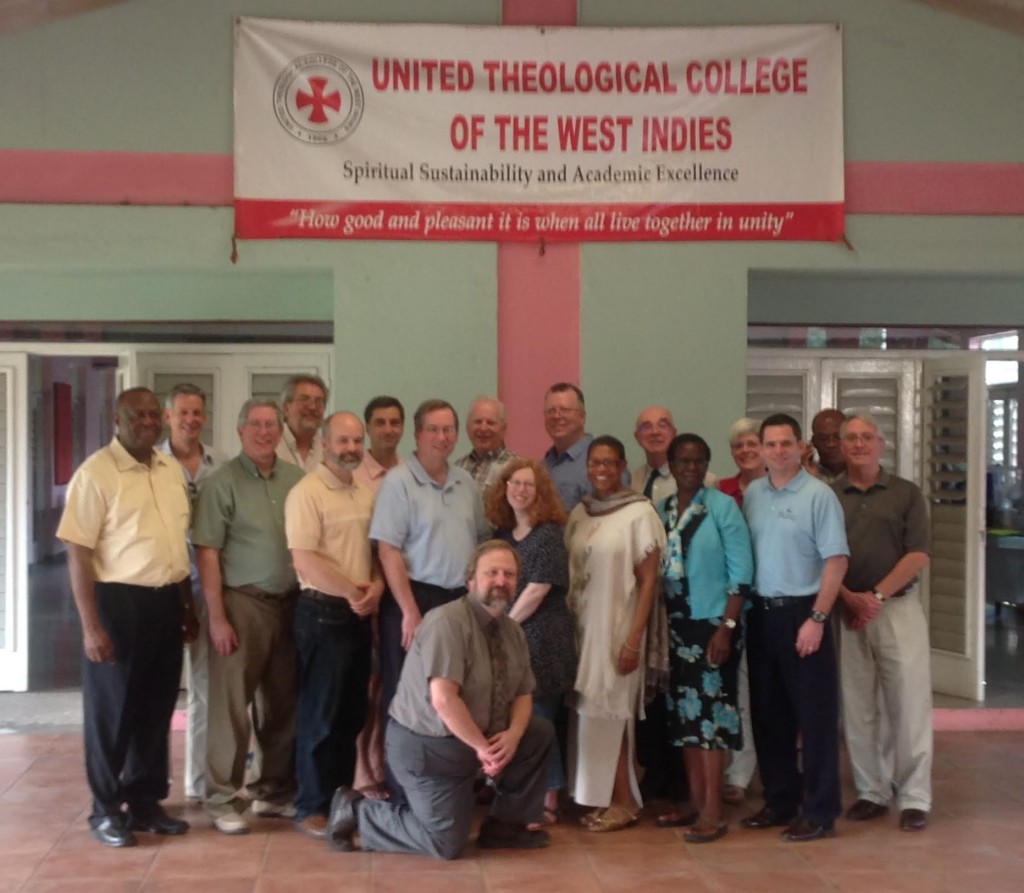Recently, I was honored to participate in the Believers Baptism Consultation in Kingston, Jamaica (press release and final report). This event was attended by leaders and scholars representing a variety of Christian theological traditions and a representative of the Faith and Order Commission of the World Council of Churches. My presentation was entitled “Believers Baptism in the Pentecostal Tradition.”
I have been involved in local ecumenism for decades. I have long believed that the mission of Christ requires all Christians to join together for fellowship and mission. I have discovered that such participation and dialogue gives us an opportunity to hear one another and better understand one another.
All Christians should embrace wider ecumenical participation and missions because:
- It is the prayer of Jesus Christ. “The glory which You have given Me I have given to them, that they may be one, just as We are one; I in them and You in Me, that they may be perfected in unity, so that the world may know that You sent Me, and loved them, even as You have loved Me” (John 17:22-23). I am reminded that Jesus told his disciples, “I have other sheep, which are not of this fold; I must bring them also, and they will hear My voice; and they will become one flock with one shepherd” (John 10:16).
- It is the work of the Holy Spirit. The Apostle Paul declared, “Therefore I make known to you that no one speaking by the Spirit of God says, “Jesus is accursed”; and no one can say, “Jesus is Lord,” except by the Holy Spirit” (1 Corinthians 12:3). If Pentecostals are to take seriously the work of the Spirit, then we must embrace all who confess the Lordship of Jesus Christ as brothers and sisters.
- It demonstrates the priority of love. Jesus said, “By this all men will know that you are My disciples, if you have love for one another” (John 13:35). At the consultation a delegate asked me, “What are the limits of ecumenism?” I replied, “The Lordship of Jesus Christ and love.” Love transcends the theological barriers believers have erected through the centuries and demands that we give our brothers and sisters an honest hearing. As in any relationship misunderstandings may occur, but they should not prohibit fellowship.
- It allows for greater understanding between brothers and sisters in the Faith. As I listened to the presentations of the other delegates I realized that I had misunderstood their traditions. Many of the delegates expressed the same sentiment to me. If we want to be ambassadors of our Faith tradition, it requires dialogue with those of different faith traditions.
My presentation was well received by the delegates at the consultation. But I believe my greatest contribution to the event was in the introduction of my presentation:
Tongues speech is another distinctive that informs the Pentecostal way of doing theology. The Holy Spirit inspires a diversity of tongues which must be properly interpreted and discerned. The Holy Spirit inspires words of wisdom and knowledge speaking “with the tongues of men and of angels” (1 Corinthians 12:8-10; 13:1). The task of theology is to understand the mysteries of God. The theologian should be careful to remember that the best discernment, the best interpretation is likened to seeing “in a mirror dimly” (1 Corinthians 13:12). Therefore, the unity of the faith depends upon the primacy of love and embracing the diversity of theological tongues. In other words, a diversity of theological expressions within the Christian church need not signify schism. Pentecostalism resists homogeneous expressions of Christianity. Pentecostals are at home among the great multitude of “tribes and peoples and tongues” (Revelation 7:9).
The Christian church is comprised of many tribes and theological tongues. The distinction of diverse tongues goes to the essence of who we are. As one delegate pointed out, it’s not just the difficulty of translating words, but of systems of logic as well. Humans of various cultures think differently, we process images and words differently. There were two miracles at Pentecost. First, those filled with the Holy Spirit spoke in tongues. Second, those in the streets heard their languages. We should understand that the signs of the Holy Spirit are twofold: inspired speaking and inspired hearing. In the New Creation there will be multitudes of every tongue. No, glorified believers will not speak one heavenly language. Glorified believers will speak many languages. The miracle of New Creation is that we will understand them all! May we discover a foretaste of the Kingdom of God as we seek to hear the Spirit inspired theological tongues of our brothers and sisters.

